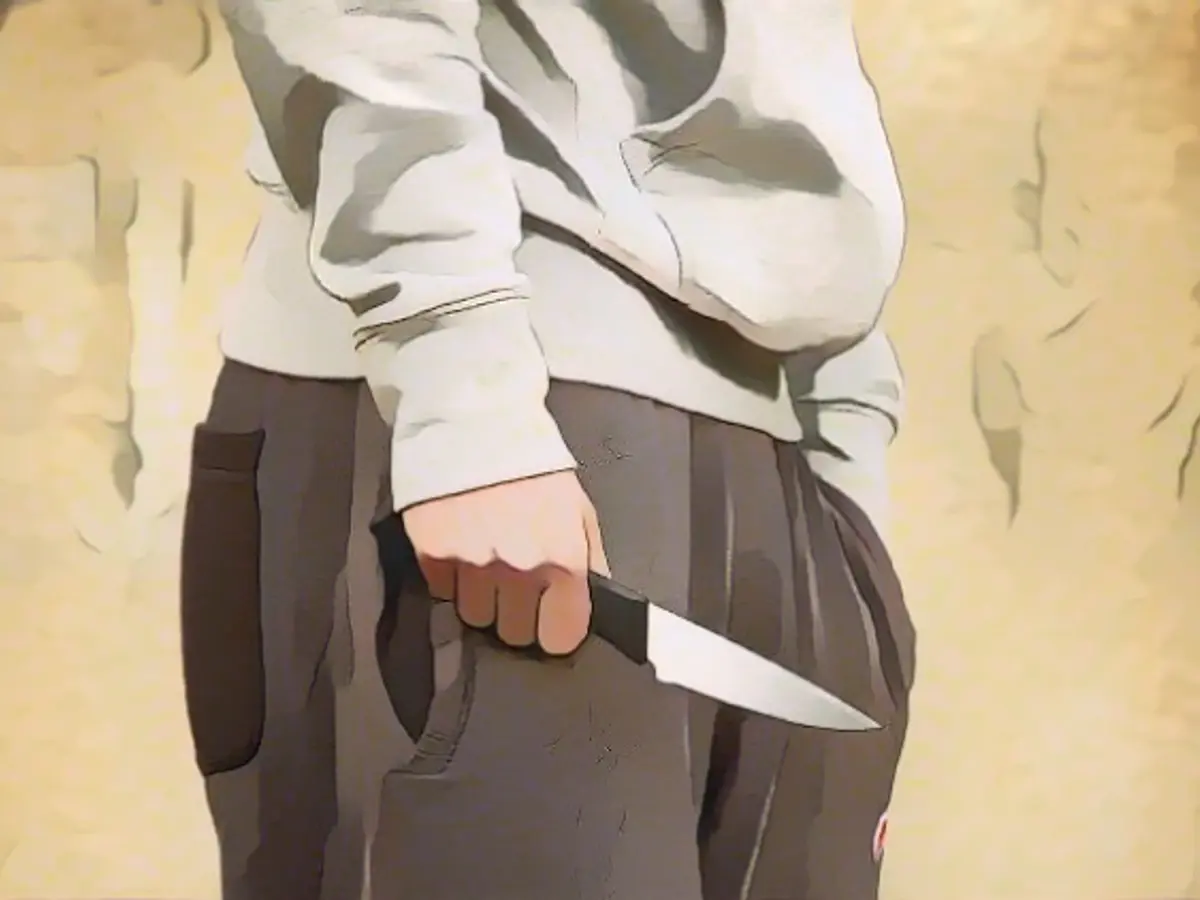Discussions arise over knife restriction following a violent incident in Solingen
Troubling Incident at a Solingen City Festival Sparks Controversy over Knife Control Strategies: What Approaches are Feasible in Combatting Knife Crimes?
The SPD strongly endorses a wholesale ban on knives, while the Liberals have thus far resisted this notion. However, this position may be shifting after the knife attack in Solingen.
The knife attack in Solingen has prompted Federal Minister of Justice Marco Buschmann to propose discussions on knife regulations. "We will now engage in deliberations within the federal government to further enhance our efforts against this type of knife crime," Buschmann stated to "Bild am Sonntag". The Liberals have, until now, dismissed the proposals put forward by Interior Minister Nancy Faeser regarding more restrictive bans. The SPD, however, is pushing for significant reinforcement of relevant legal measures.
"This apparent terrorist attack underscores: Germany grapples with knife violence," remarked SPD leader Lars Klingbeil to "Bild am Sonntag". He advocates for a near-total prohibition on carrying knives in public spaces: "There exists no valid reason for individuals to carries stabbing weapons as part of their daily lives. Every effort must be made to ensure that knives cease to be a common sight on Germany's streets and squares." Klingbeil's sentiments were echoed by his party colleague, Dirk Wiese. Wiese urged politicians to "make headway on knife bans," stating that Wiese himself had advocated for such a ban in the "Rheinische Post" last week. Beyond this, Wiese supports expanded powers for law enforcement agencies to identify and apprehend potential offenders, particularly in the digital realm.
"Criminals will not be deterred by such measures"
Prior to the incident in Solingen, Faeser had announced plans to introduce legislation augmenting knife bans "soon". The motivation behind this stems from a series of violent episodes where knives were employed. A proposal to ban additional types of knives is also on the table. However, Faeser also highlighted the need for increased weapon bans and knife ban zones, as well as augmented police surveillance.
Critics regard the proposals as inadequate to efficiently minimize the rising number of knife-related incidents in Germany. Solingen MP Jürgen Hardt is sceptical about the effectiveness of a blanket ban. "We already have bans" in place, Hardt noted on "Deutschlandfunk". "It is not to be assumed that criminals will be deterred by such measures."
Hardt proposes implementing prohibitions on carrying harmful objects "selectively" against individuals who have a previous history of violent crimes. Such a ban may extend to knives, axes, and other objects that can be utilized as weapons.
The ongoing debate over tightening weapons legislation was reignited by the knife attack in Solingen, which occurred on Saturday. An individual stabbed several attendees with a knife at a city festival on Friday evening. Tragically, three people lost their lives, and eight others sustained injuries. The perpetrator remains at large, as police continue their search.
"The ongoing debate about knife control strategies has led other political figures to reconsider their positions, particularly in light of the knife attack in Solingen."
"Some critics argue that a blanket ban on knives may not deter criminals and suggest implementing selective prohibitions against individuals with a history of violent crimes."








